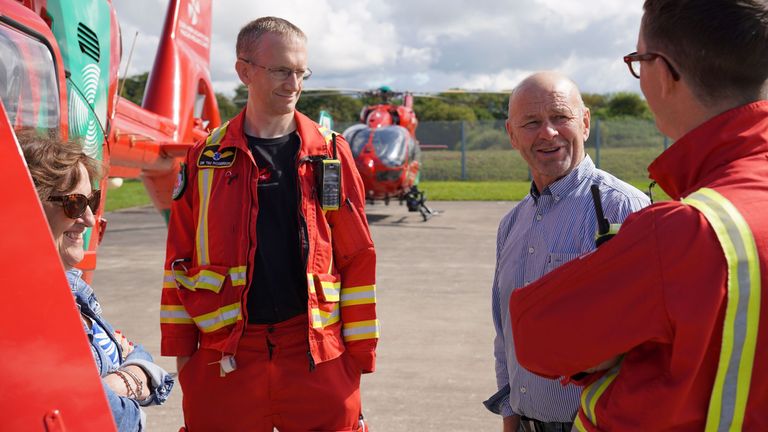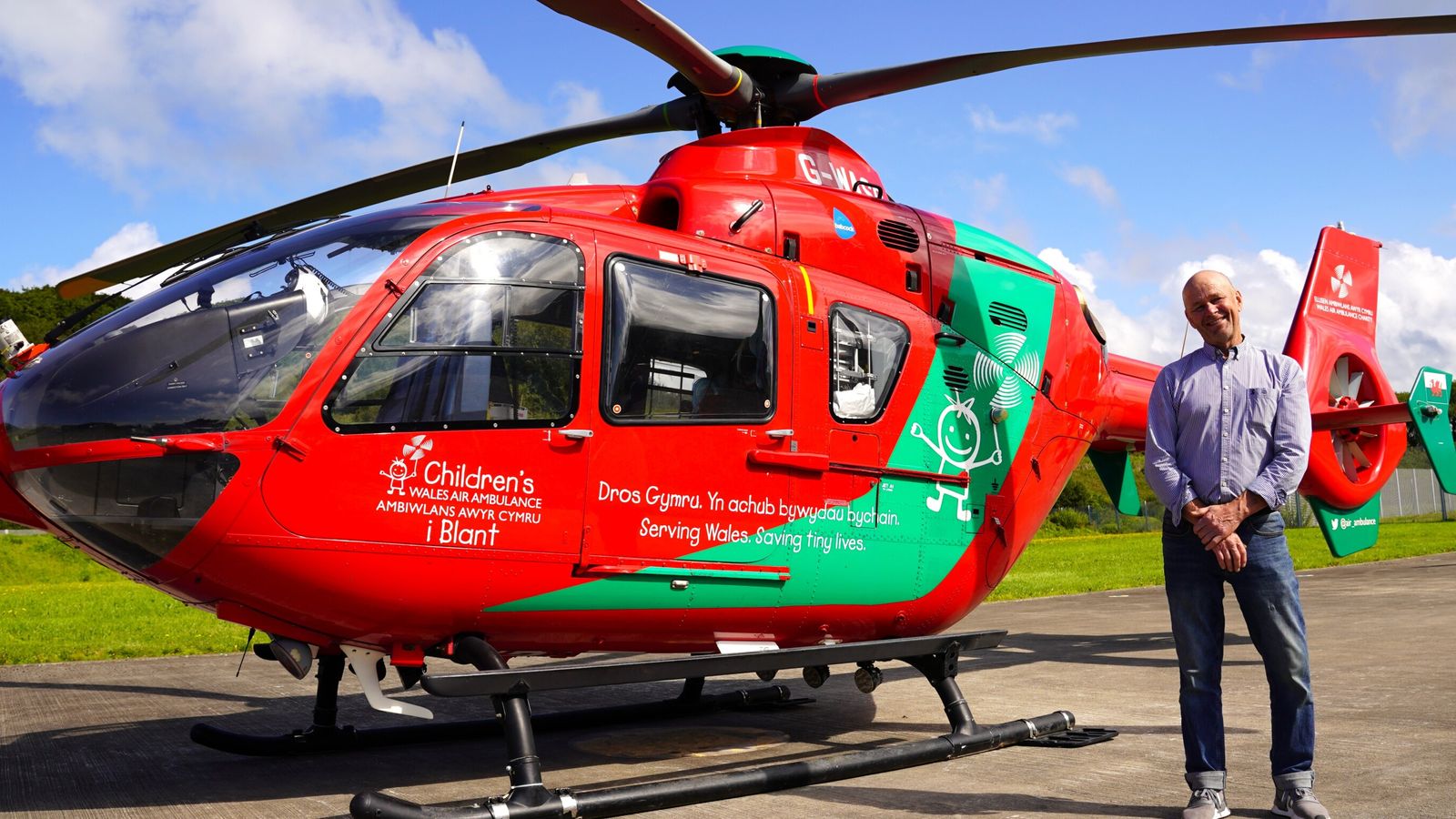
A retired builder who drove himself to hospital with his bowels wrapped in a T-shirt has said he is “lucky to be alive”.
Warning: Contains graphic details about the injury
Brendan Clancy had been cutting pallets in his garden when he fell onto his saw’s 9in blade.
The saw cut through his abdomen and his bowels before he drove himself to a community hospital 10 minutes away.
The 67-year-old, from Upper Cwmtwrch in the Swansea Valley, said he lost his footing before he tripped onto the saw.
“I felt something squidgy and I realised my bowels were coming out,” he said.
“I couldn’t believe it. They just kept coming out and it seemed as if it would never stop.”
Mr Clancy’s wife was not nearby at the time and he said he “couldn’t wait for help to arrive”.
“There was a bucket on the floor but that was dirty, and I thought I couldn’t use that, so I went inside and grabbed a T-shirt and wrapped them up in that,” he said.
‘Carrying your guts’
While on his way to the hospital, Mr Clancy made sure he was “keeping [his] senses and concentrating”.
“I have a manual car, and all my guts were all over the gear lever side, but it helped to take my mind off it,” he said.
“When you are carrying your guts, you don’t think of anything else apart from keeping them all in one place.”
The Wales Air Ambulance was called to transfer Mr Clancy to the University Hospital of Wales in Cardiff.
He underwent four hours of surgery before he returned home a few days later without any lasting injuries other than a 12in scar.
Read more from Sky News:
Why has the default speed limit changed to 20mph in Wales?
Hurricane Lee aftermath to hit parts of UK after floods close airport
Professor David Lockey, the critical care consultant who treated Mr Clancy, said it was “good to hear” he had recovered quickly.
“Despite the positive outcome in this case, we would still advise anybody in an emergency situation to call 999 directly. It also serves as a reminder to everyone to be careful with power tools,” he said.
The air ambulance service, which covers all corners of Wales, relies on public money to keep its four air ambulances in operation.











